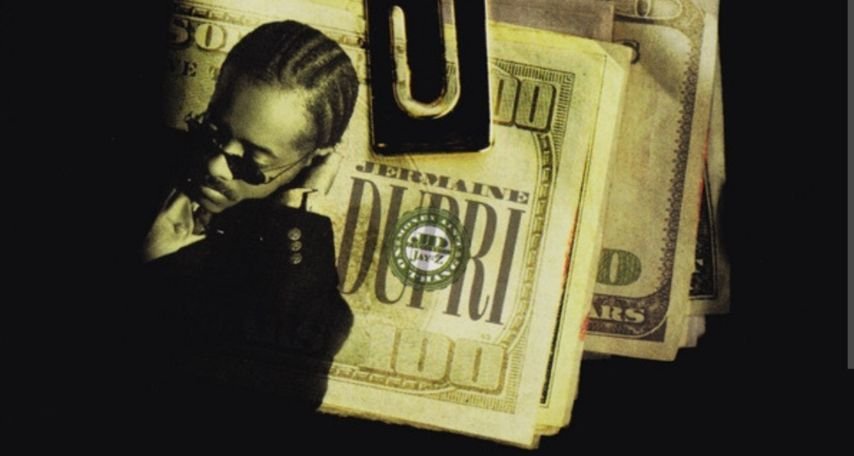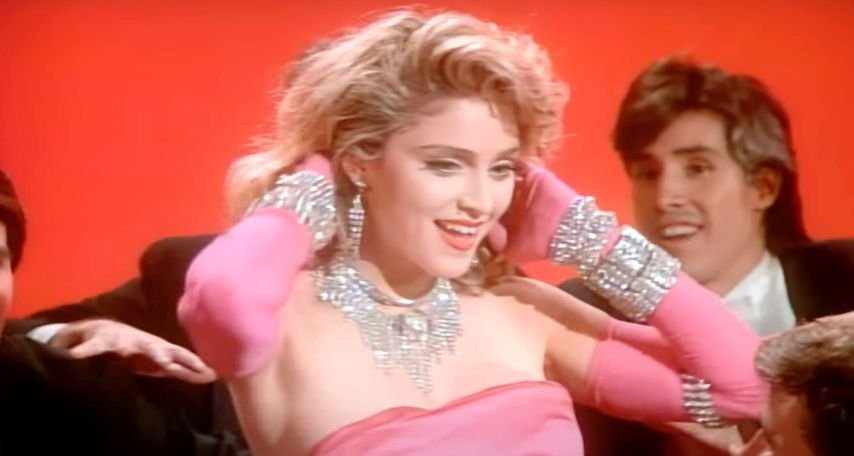Money makes the world go round. But it also makes the music spin. Money is not only a means of exchange but also a source of inspiration, emotion, and controversy.
It is a recurring theme in popular music. From songs about wealth and materialism to explorations of envy and jealousy, the influence of money on society is reflected in the lyrics and music videos of many artists.
In this blog post, we will delve into the different aspects of money explored in songs, its impact on society, and the influence of pop culture on this topic.
The Role of Money in Popular Music
Money is a universal topic that has been explored in popular music for decades.
It is a symbol of success, power, and desire and often represents the ultimate goal for many individuals.

Songs about money are not just about the accumulation of wealth but also about the lifestyle and opportunities that come with it.
From the blues to hip-hop, artists have used music to express their relationship with money.
Whether they aspire to it, celebrate it, or critique it, the role of money in popular music is undeniable.
The lyrics and music videos of these songs often reflect the values and attitudes of society towards wealth and materialism.
Songs About Wealth and Materialism
Some songs are all about the Benjamins.They glorify wealth and luxury and show off the perks of being rich and famous.
Many of these songs celebrate the accumulation of wealth and material possessions
These songs often portray money as the key to happiness, success, and power.
Some of the most popular songs about money are from the hip-hop genre. For example, Jermaine Dupri and Jay-Z’s “Money Ain’t a Thang” and Lil Wayne’s “Got Money” are two songs that glorify wealth and materialism.
Money Ain’t a Thang by Jermaine Dupri and Jay-Z

The song’s lyrics celebrate the extravagant lifestyle that money can provide, with lines like “I’m the man of the hour, triple beam, I devour, power, respect, my mindset is money-oriented” highlighting the importance of financial success in the world of hip-hop.
The song also addresses the challenges of maintaining financial success in the face of societal pressures and personal obstacles, with lines like “So I got to do what I got to do, and make the best of this crooked-ass crew” speaking to the difficulties of navigating the music industry as a young, black artist.
The song’s music video features Dupri and Jay-Z in a variety of luxurious settings, showcasing the trappings of wealth and success.
“Money Ain’t a Thang” is a celebration of the power of money and the success that it can bring, and a reflection of the importance of financial independence and resilience in the face of adversity in pop culture.
Got Money by Lil Wayne’s
The song’s lyrics describe the experiences of a wealthy artist who revels in his financial success and the lavish lifestyle that it affords him.
Lines like “I need a Winn-Dixie grocery bag full of money, right now to the VIP section” highlight the importance of money and material possessions in the world of hip-hop, while also speaking to the excess and extravagance that can come with financial success.
The song’s music video features Lil Wayne in a variety of opulent settings, showcasing the trappings of wealth and success.
“Got Money” is a celebration of the power of money and the success that it can bring, and a reflection of the ways in which wealth and luxury have been glorified in popular culture, particularly within the world of hip-hop.
Money by Pink Floyd
The song’s lyrics criticise the greed and materialism that can come with the pursuit of wealth, with lines like “Money, it’s a gas, grab that cash with both hands and make a stash” highlighting the negative effects of an obsession with money and the ways in which it can corrupt individuals and society as a whole.
The song’s iconic guitar riff and use of sound effects, such as the sound of cash registers, contribute to its overall theme of the role of money in modern society.
The song’s music video features striking visuals, such as footage of people exchanging money and a pig flying over a cityscape, further emphasizing its critique of capitalist society.
“Money” is a powerful exploration of the themes of greed, materialism, and the corrupting influence of wealth, and a reminder of the need to consider the ethical implications of our relationship with money in popular culture.
Mo Money, Mo Problems by The Notorious B.I.G.
This hip-hop hit samples Diana Ross’s “I’m Coming Out” and features Puff Daddy and Mase. It reflects on the challenges and dangers of being rich and successful in the rap game.
Billionaire by Travie McCoy and Bruno Mars
This pop song expresses the desire to be a billionaire and do good things with money, such as helping the poor, meeting celebrities, and being on magazine covers.
These types of songs can be seen as aspirational for some listeners, who see wealth as the ultimate goal.
However, they can also be seen as promoting shallow values and a consumerist mentality.
It is important to recognize the impact that these messages can have on society, particularly on young people who may be more susceptible to these ideas.
The Evolution of Rap Songs About Money
Hip-hop music has been at the forefront of exploring the relationship between money and society.
In the early days of hip-hop, songs about money were often about the struggle to make ends meet.
As the genre evolved and became more mainstream, songs about wealth and materialism became more prevalent.
However, there has also been a recent trend in hip-hop music that explores the realities of money and success.
Artists like Kendrick Lamar and J. Cole have released songs that critique the obsession with money and material possessions.
For example, Kendrick Lamar’s Money Trees talks about the cost of achieving success, while J. Cole’s “Neighbors” explores the challenges of being a successful black man in America.
These types of songs challenge the traditional narrative about money and success and provide a more nuanced perspective on the topic.
Envy and Jealousy in Songs About Money
Not all songs about money celebrate wealth and materialism. Some songs explore the negative emotions that can arise from the pursuit of money.
Envy and jealousy are common themes in these types of songs.
One such song is “Bills, Bills, Bills” by Destiny’s Child.
Bills, Bills, Bills by Destiny’s Child
The song talks about the frustration of being in a relationship with a man who can’t provide financially.
The lyrics “Can you pay my bills? / Can you pay my telephone bills? / Can you pay my automo-bills?” express a desire for financial stability and independence.
Money (That’s What I Want) by Barrett Strong
This R&B song was the first hit for Motown Records in 1959. It expresses the singer’s desire for money above all else and his dissatisfaction with his current situation.
Money for Nothing by Dire Straits
This rock song was a huge hit in 1985, thanks to its groundbreaking music video that featured early computer animation.
It tells the story of a working-class man who envies the easy life of rock stars, who get “money for nothing and chicks for free.”
Rich Girl by Gwen Stefani and Eve
This pop song samples “If I Were a Rich Man” from the musical Fiddler on the Roof.
It features a rap verse from Eve, who plays the role of a rich girl who is unhappy with her life.
Stefani sings the chorus, which warns her not to depend on her wealth or her man.
Songs like this highlight the impact that money can have on relationships and the emotions that can arise when one partner has more money than the other.
The Impact of Songs About Money on Society
The messages in songs about money can have a significant impact on society. They can shape our attitudes and values towards wealth and materialism.

For example, songs that glorify wealth and material possessions can contribute to a culture of consumerism and a focus on material wealth.
On the other hand, songs that critique the obsession with money and provide a more nuanced perspective can encourage listeners to think critically about their relationship with money.
It is important to recognise the impact that these messages can have and to be mindful of the values that we are promoting through music.
The Influence of Pop Culture on Songs About Money
Pop culture has a significant influence on the messages that are promoted through music.
The rise of social media and the internet has made it easier for artists to promote their music and connect with their audience. As a result, the influence of pop culture on music has increased.
Pop culture can also shape the messages that are promoted through music. For example, the rise of reality television shows like “Keeping Up with the Kardashians” has contributed to a culture of celebrity and the glorification of wealth and material possessions.
It is important to recognise the influence that pop culture has on the messages that are promoted through music and to be mindful of the values that we are promoting.
The Most Popular Songs About Money

Some of the most popular songs about money include “Money” by Pink Floyd, “Material Girl” by Madonna, “Money Talks” by AC/DC, and “Money, Money, Money” by ABBA.
These songs celebrate the accumulation of wealth and material possessions and reflect the attitudes of society towards money.
Material Girl by Madonna
The song’s lyrics describe the experiences of a woman who values money and material possessions over personal relationships, with lines like “Living in a material world, and I am a material girl” highlighting the role of consumer culture in shaping our values and aspirations.
The song’s music video features Madonna in a variety of glamorous settings, showcasing the trappings of wealth and success.
The song’s catchy chorus and upbeat tempo have made it an enduring classic of the 1980s pop era, and a reflection of the ways in which money and material possessions have been glorified in popular culture.
“Material Girl” is a fun and playful exploration of the ways in which money and materialism shape our desires and perceptions of success, and a testament to the enduring appeal of wealth and luxury in pop culture.
However, there are also many other songs that provide a more nuanced perspective on money and success.
These songs challenge the traditional narrative about money and provide a more critical perspective on the topic.
Money, Money, Money by ABBA
The song’s lyrics describe the struggles of a working-class woman who dreams of a better life, with lines like “In my dreams I have a plan, if I got me a wealthy man” highlighting the allure of financial security and the desire to escape poverty.
The song also addresses the challenges of balancing financial success with personal relationships, with lines like “All the things I could do, if I had a little money, it’s a rich man’s world” speaking to the social and emotional tolls of economic inequality.
The song’s upbeat tempo and catchy chorus have made it an enduring classic of the disco era, and a reflection of the enduring appeal of money and financial success in pop culture.
“Money, Money, Money” is a fun and lively exploration of the ways in which money shapes our dreams and aspirations, and a testament to the enduring allure of financial security in our society.
Analysis of Lyrics in Songs About Money
The lyrics in songs about money are often rich with symbolism and metaphor.
They provide a window into the perspectives and attitudes of the artist towards wealth and materialism.
Analyzing the lyrics of these songs can provide insights into the values and attitudes of society towards money.
For example, the lyrics “I want money, lots and lots of money / I want the pie in the sky” from The O’Jays’ “For the Love of Money” reflect a desire for wealth and material possessions.
The lyrics “I’d rather be broke and have a whole lot of respect / Than have a whole lot of money and be something like a reject” from J. Cole’s “Love Yourz” reflect a more critical perspective on the topic.
Money-Themed Music Videos
The music videos for songs about money often reflect the values and attitudes of society towards wealth and materialism.
They can be visually stunning and provide a window into the lifestyle and opportunities that come with wealth.
For example, the music video for “Money” by Cardi B features scenes of the rapper flaunting her wealth, including a room full of money and a luxury car.
Money by Cardi B
The video reflects the values of society towards wealth and material possessions and can contribute to a culture of consumerism.
The song’s lyrics celebrate Cardi B’s success and financial independence, with lines like “I was born to flex, diamonds on my neck, I like boardin’ jets, I like mornin’ sex” highlighting the luxuries that money can provide.
The song also addresses the challenges of achieving financial success as a woman in a male-dominated industry, with lines like “But nothing in this world that I like more than checks” speaking to Cardi B’s determination to secure her financial future.
The song’s music video features Cardi B in a variety of opulent settings, showcasing the trappings of wealth and success.
“Money” is a celebration of the power of money and the success that it can bring, and a testament to the hard work and perseverance required to achieve financial independence in today’s society.
Rap Songs That Explore the Realities of Money and Success
As mentioned earlier, there has been a recent trend in hip-hop music that explores the realities of money and success.
These songs provide a more critical perspective on the topic and challenge the traditional narrative about wealth and materialism.
For example, Kendrick Lamar’s “Money Trees” talks about the cost of achieving success and the impact that it can have on relationships.
Money Trees by Kendrick Lamar
The song’s lyrics describe the struggles of growing up in a poverty-stricken environment, where the desire for financial success is fueled by a need to escape the cycle of hardship and violence.
Lamar’s lyrics are a powerful commentary on the ways in which money can both empower and corrupt, with lines like “Everybody gon’ respect the shooter, but the one in front of the gun lives forever” highlighting the harsh realities of street violence and the lure of criminal activity.
The song also reflects on the broader social and political forces that contribute to economic inequality, with lines like “Money trees is the perfect place for shade and that’s just how I feel” speaking to the systemic nature of poverty and the need for systemic change.
“Money Trees” is a poignant reflection on the ways in which money impacts our lives and communities, and a call to action for greater economic justice and equity.
And with lyrics like, “Ain’t nothin’ worse than a rich rapper / A broke entrepreneur” the song reflects a more nuanced perspective on the topic.
Songs That Challenge the Traditional Narrative About Money
Not all songs about money celebrate wealth and materialism. Some songs challenge the traditional narrative about money and provide a more critical perspective on the topic.
One such song is “Love Yourz” by J. Cole. The song talks about the importance of appreciating what you have and finding happiness in the simple things in life.
Love Yourz by J. Cole
The song’s lyrics encourage listeners to appreciate the value of what they have, rather than always striving for more. “Always gon’ be a bigger house somewhere, but n*a, feel me / Long as the people in that motherfker love you dearly” reflect a more nuanced perspective on the topic.
Cole raps about his own experiences with the pressures of success and wealth, with lines like “No such thing as a life that’s better than yours” emphasizing the importance of finding contentment and satisfaction in one’s own life.
The song’s message is a powerful counterpoint to the prevailing messages of consumer culture, which often equate happiness and success with material possessions and financial gain.
“Love Yourz” is a thought-provoking reflection on the ways in which our values and aspirations are shaped by money, and a reminder of the importance of finding happiness and fulfillment in life’s simple pleasures.
How Songs Use Money as a Symbol or reference to Popular Culture
Some songs are all about the culture. They use money as a symbol or reference to popular culture and events and show their connection to or commentary on them.
These songs are often clever and creative, with witty references and catchy phrases. They appeal to our curiosity and knowledge and make us laugh or think.
For the Love of Money by The O’Jays
This soul song was released in 1973 as part of the album Ship Ahoy. It uses money as a symbol of greed and corruption and features the famous opening of “Money money money money… MONEY.”
It was also used as the theme song for Donald Trump’s reality show, The Apprentice.
She Works Hard for the Money by Donna Summer
This disco song was released in 1983 as part of the album of the same name. The song’s lyrics tell the story of a working-class woman who struggles to make ends meet and faces discrimination in the workplace.
Summer’s powerful vocals capture the woman’s determination and resilience in the face of adversity, with lines like “She works hard for the money, so hard for it honey” highlighting the sacrifices that many people make in order to provide for themselves and their families.
The song’s iconic music video features Summer as a waitress in a diner, and showcases the struggles and triumphs of working-class women in America.
Overall, “She Works Hard for the Money” is a powerful anthem for the working class, and a reminder of the importance of dignity, respect, and fair wages in our society.
Opportunities (Let’s Make Lots of Money) by Pet Shop Boys
This song captures the spirit of 1980s consumerism and entrepreneurship.The lyrics are sung from the perspective of a person who is driven by a desire for financial success and who is willing to do whatever it takes to achieve it.
The chorus, which repeats the line “Let’s make lots of money,” is a playful and tongue-in-cheek take on the obsession with wealth and material possessions in modern society.
The song also highlights the idea that success is often equated with financial gain, with lines like “I’ve got the brains, you’ve got the looks, let’s make lots of money” suggesting that money is the key to achieving one’s goals.
“Opportunities (Let’s Make Lots of Money)” is a clever commentary on the role of money in pop culture, and the ways in which it shapes our values and aspirations.
Got Your Money by Ol’ Dirty Bastard and Kelis
The song’s lyrics focus on the pursuit of wealth and the status that comes with it, with Ol’ Dirty Bastard rapping about his desire for money and the power that it brings.
Kelis provides the song’s catchy chorus, which centers around the idea that she has “got your money” and is not afraid to use it.
The music video for the song also plays with the theme of money, featuring ODB and Kelis dressed in lavish outfits and surrounded by stacks of cash.
“Got Your Money” is a satirical take on the way that money and material possessions are often glamorized in popular culture.
I Need a Dollar by Aloe Blacc
The song’s lyrics reflect on the struggles of making ends meet and the desire for financial stability.
Blacc’s powerful vocals deliver lines such as “I need a dollar, dollar, dollar, that’s what I need” which showcase the desperation and urgency of the need for money.
The song also highlights the idea that money can be both a blessing and a curse, with the lyrics acknowledging the temptations and pitfalls that come with financial success.
“I Need a Dollar” is a poignant reflection on the ways in which money impacts our lives, and the challenges that come with navigating the complex world of finance and materialism.
The Importance of Examining the Messages in Songs About Money
Money is a universal topic that has been explored in popular music for decades. It is complex and fascinating and has inspired many songs over the years.
The messages in these songs can have a significant impact on society and reflect the values and attitudes of society towards wealth and materialism.
Songs can use money as a symbol or reference to popular culture and events, as well as express wealth, materialism, envy, and other related themes.
Whether you love it or hate it, money is a part of our lives and our culture.
It is important to recognize the impact that these messages can have and to be mindful of the values that we are promoting through music.
By examining the messages in songs about money, we can gain insights into the perspectives and attitudes of society towards wealth and materialism and encourage a more critical perspective on the topic.
What are your favourite songs about money? How do they reflect your views on money?
If you enjoyed this article, you may also like to read other similar articles:
- 60 Best Karaoke Duets of All Time
- The Golden Age of Hip Hop: A Guide to the 90s Rap Scene
- Timeless Love Song Classics
- 10 Best Movie Soundtracks Of All Time
- The Ultimate Guide to Songs About Life: A Melodic Exploration of Existence
- Songs About Cheating: A Melodic Journey Through Love, Betrayal, and Redemption


